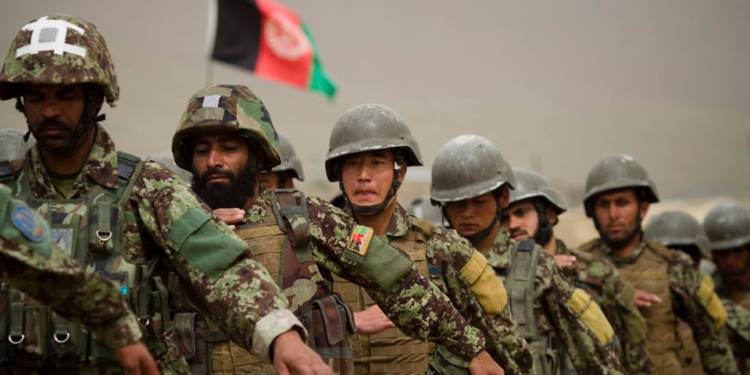Problems for Pakistani establishment seem to be spiralling up over the past few years, with its neighbours especially India and Afganistan upping the heat on the terror-sponsoring nation. In a recent setback, Pakistani forces have suffered heavy causalities in a military clash between respective forces at Chitral district of Khyber-Pakhtunkhwa, according to a report in Asian News International.
According to reports Pakistan is in the process of building a fence on its borders with Afghanistan in response to firm complaints by Afghani sides over cross border movement. The reports also stated that Afghan security forces fired mortars and heavy machine guns from Nari District, Kunar province and also suffered casualties in the clash.
According to a report in Eurasian times, the Inter-Services Public Relations (ISPR), the media wing of the Pakistan Armed Forces, confirmed the news and said “Afghan forces fired mortars and heavy machine-guns from Nari District, Kunar Province, targeting civilian population in Arundu village, Chitral,… Six soldiers and five citizens, including a woman got injured”.
It is to note Pakistan has been notorious when it comes to accepting the collateral damage from its nefarious activities in the region. Pakistan has also been called out a number of times using the 2,400 km long pours border between the two countries, for unprovoked firing incidents and aiding Taliban and other terrorist groups operating in the region.
Earlier too Pakistan had suffered 5 casualties after cross border clashes broke out between Afghanistan security forces and Pakistani troops who were stationed there with the task of fencing up a stretch of the rugged 2,400 km mountainous border. Afghan officials had claimed that Pakistani troops entered Afghan territory, prompting them to engage. Local tribesmen were also reportedly involved in the clashes.
Moreover, Pakistan has been actively interfering in Afghan affairs since the Soviet invasion in the 80s, having supplied the United States with bases and passage, while at the same time supporting terrorist outfits across the border in an attempt to create instability and influence governance. The rise and mainstreaming of Islamic fundamentalism in Afghanistan and the world over can be traced back to Pakistani and American of support of Jihadi outfits to help repel the Soviet invasion, leading to the rise of the Taliban in the 90s.
The spike in border clashes with its neighbours is a sure shot sign of internal and external instability in Pakistan, marked by increasingly deteriorating diplomatic relations with other nations. Afghanistan and India are likely to counter Pakistani terror agenda and find common ground regarding similar security concerns in the coming future.























